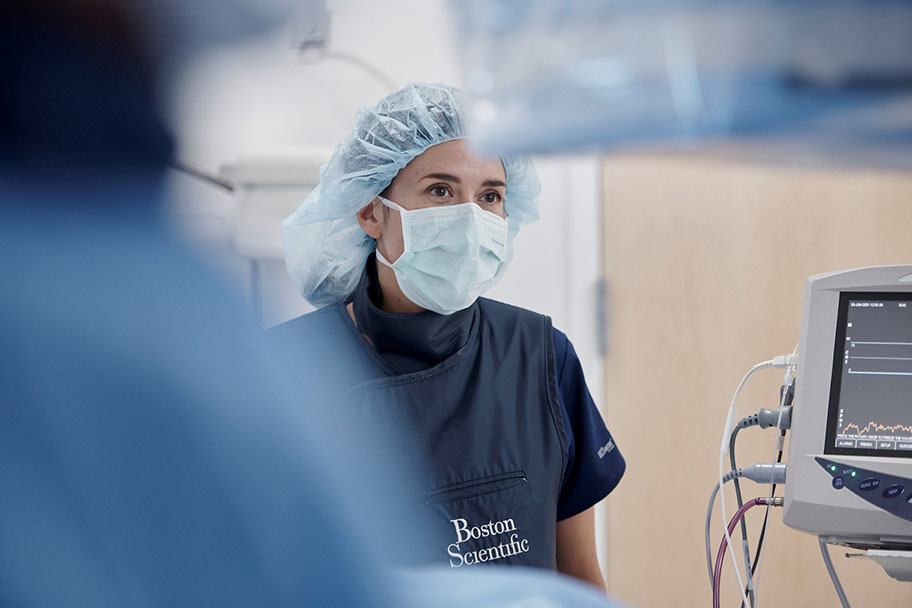
Female pain physicians are being inspired to develop their skills which will help to expand the number of skilled specialists in pain management, thanks to the training and networking being offered by Women in Neuromodulation (WiNMOD), a network that aims to raise female visibility in this field.
Women remain vastly underrepresented in European neuromodulation, despite recent progress to change this trend (1). Chronic pain is defined as continuous and long-term pain lasting for more than 12 weeks (2). Spinal device implanters are helping patients with different solutions that improve pain management so that they return to leading a full and active life.
After attending WiNMOD’s device implanting training during a cadaver workshop, Dr Athanasia Chatziperi, who has a background in anaesthetics, has sought further training so that in the future she can offer device implants to patients. "WiNMOD is a great opportunity for women in neuromodulation or women thinking of joining it, to come together and exchange ideas and opinions. I felt motivated and empowered to start an exciting journey in Neuromodulation, after seeing other women who had already achieved that."
Other attendees who participated in the training day and cadaver workshop described it as “great hands on learning experience on cadaver” and “very inspiring for future generation of neuromodulators”. Boston Scientific established WiNMOD in February 2020 to enhance gender diversity in neuromodulation. The group has held two forums to advance training, share knowledge, and facilitate networking for aspiring pain physicians.
WiNMOD’s aims are to:
- encourage female representation in neuromodulation
- ensure more medical students / junior doctors specialise in pain and neuromodulation
- increase patient referrals for neuromodulation
"Our aim is to inspire the next generation of female pain physicians by being positive role models, through teaching and training workshops, and promoting the great work that women are doing in this exciting medical specialty" says Dr Sheila Black who ran the training. "Running our neuromodulation training day and cadaver workshop brought together female pain physicians to learn together, network, and think about how we improve gender diversity.”
A lack of knowledge and availability about fellowships and educational routes into neuromodulation are hindering improvements in gender diversity of spinal device implanters. Female students studying pain management do not learn early enough about this rewarding career pathway during their studies so they can join an innovative area of medtech addressing patients’ chronic pain.
According to WiNMOD members, a structured educational pathway with recognised qualifications is required to ensure healthcare professionals build the knowledge, skills, and networks to become experienced practitioners. Secondly, having access to mentors to share concerns and discuss pain options would be highly beneficial in expanding the pain specialists’ community, which is still considered to be a niche medical area. Thirdly, creating credible training pathways that are flexible in format is also crucial to attract women into neuromodulation to accommodate caring responsibilities and demanding studying schedules.
“For female practitioners, it is important to see visible role models who help to raise their confidence and provide insights into developing a fulfilling career,” said Andrea Caradonna, Boston Scientific co-lead of WinMOD . “Listening to WiNMOD members, it is clear that connections matter to progress careers and secure competitive development opportunities.”
References
- Schaller, K. Women in European neurosurgery. Acta Neurochir 162, 239–240 (2020). (https://doi.org/10.1007/s00701-019-04165-z)
- Mills S, Torrance N, Smith BH. Identification and Management of Chronic Pain in Primary Care: a Review. Current Psychiatry Reports. 2016;18:22. doi:10.1007/s11920-015-0659-9. (https://www.ncbi.nlm.nih.gov/pmc/articles/PMC4731442/)